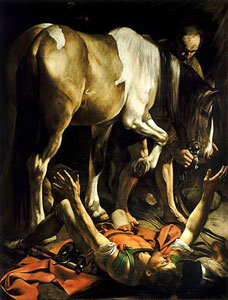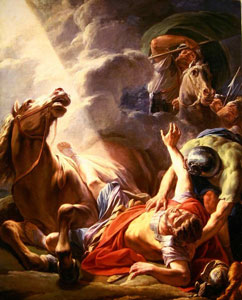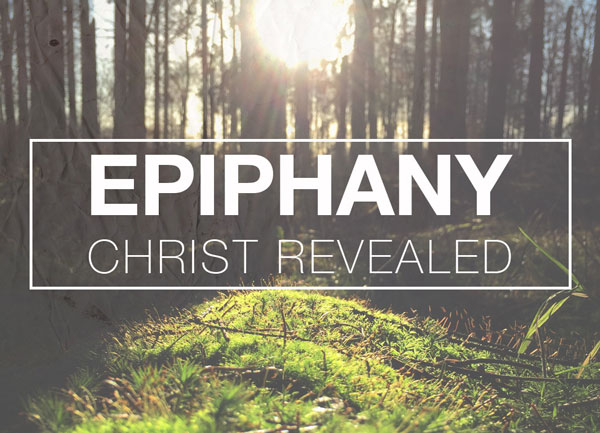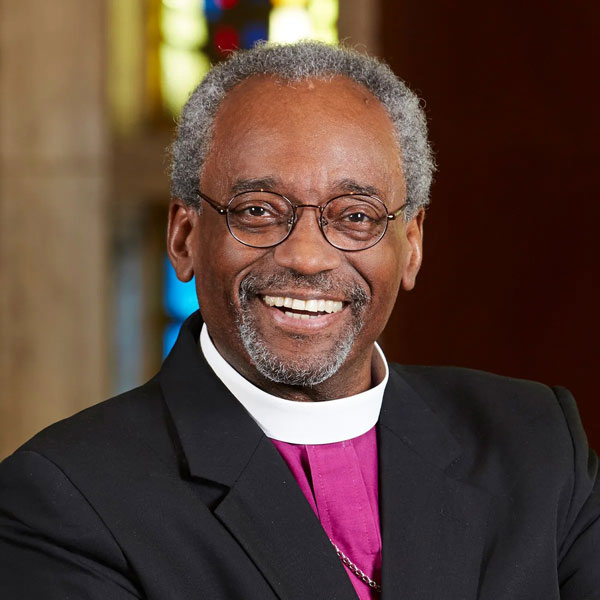Unselfish love is defined as an altruistic form of love characterized by selflessness, compassion and concern for the well-being of others, and placing the needs and happiness of others above one’s own, without expecting anything in return.
2024 Sun Jan 21
Conversion of Paul, Jan 25
On January 25 we remember how Saul (or Paul) of Tarsus, formerly a persecutor of the early Christian Church, was led by God’s grace to become one of its chief spokesmen. Here are two art works that depict the event :


“The Conversion on the Way to Damascus; ” (1601) “ The Conversion of St. Paul ” Nicolas-Bernard Lepicie, 1767
"and suddenly a light from heaven shined round about him. And falling on the ground, he heard a voice saying to him: Saul, Saul, why persecutest thou me? Who said: Who art thou, Lord? And he: I am Jesus whom thou persecutest. " Acts 9: 3-5
Italian painter Caravaggio painted the one on the left in 1601 for the Cerasi Chapel of the church of Santa Maria del Popolo, in Rome. The painting depicts the moment recounted in Chapter 9 of Acts of the Apostles when Saul, soon to be the apostle Paul, fell on the road to Damascus.
Caravaggio is close to the Bible. The horse is there and, to hold him, a groom, but the drama is internalized within the mind of Saul. There is no heavenly apparition. He lies on the ground stunned, his eyes closed as if dazzled by the light.
Caravaggio’s style featured a dark background with usually one point of breaking light. Paul is flung off of his horse and is seen on his back on the ground. Although Paul reflects the most light out of all the characters, the attention is given to him in a strange way. Because Paul is on the ground, he is much smaller than the horse, which is also at the center of the painting but he is pictured closer to the viewer.
The second painting constrast with Caravaggio in the use of color and light. This one has some of the most vibrant colors. Heaven’s light is shown coming dynamically from left to right. The painting is like the key frame in a movie on the conversion. At the time Lepicie was a professor at the Royal Academy of Painting and Sculpture in Paris
How can we walk in the Way of Love?

1. Decide to forgive. One of the most important aspects of the love walk is forgiveness. Choose to see people as God sees them.
2. Decide to hold your tongue. Love isn’t rude.
3. Decide to believe the best about people. Love believes the best about others.
4. Decide to not get offended by controlling your anger.
5. Decide to help those in your neighborhood that can use a hand. Be aware of opportunities to show the way of love.
6. Decide to recognize God’s presence in our everyday life
7. Decide to use the gifts you have been given in the world to make it a better place.
8. Decide to engage in Bible reading.
9. Decide to be like Jesus and retreat, especially when you are emotionally, physically and spiritually tapped out.
10. Decide to avoid the indulgence in food. The healthier our bodies (and minds), the better position we are in to walk in the way of love on behalf of the people around us.
The Season after the Epiphany – What’s it all about ? Focus on the Gospels

The Season after the Epiphany – Epiphany is all about establishing the identity of Jesus. Now that he has been born who is he ? Epiphany continues to define who Jesus is – healer, preacher and the Messiah, the last one comes early in Epiphany and continues.
Epiphany refers to the appearance of Jesus Christ as the savior of the world—of Israel and the Gentiles. For this reason, Epiphany is commonly associated with the visitation of the Magi (or “wise men”), who were almost certainly Gentiles, in Matthew 2:1–12.
We focus on the mission of the church to reach all the peoples of the earth with the great gift of God’s grace in revealing healing truth and light to the world.”
It is very much present oriented. The main idea of Epiphany is that Christ is the light of the world that came at Christmas and now beckons us to travel with Him ths year. The story of the Epiphany is about discovery—following a star to the source of salvation.Epiphany is filled with unexpected revelations that change our minds and ways – we have to be willing to experience them.
Epiphany is our jumping off spot. From the Eucharistic Prayer – “With each new day, you call us to feed the hungry, bring recovery of sight to the blind, liberate the oppressed, heal the broken hearted and bind up their wounds, and keep watch for the dawn of your reign on this earth. ”
The Way of Love – in summary

1. From the book Love is the Way by Michael Curry
“Love is a firm commitment to act for the well-being of someone other than yourself. It can be personal or political, individual or communal, intimate or public. Love will not be segregated to the private, personal precincts of life. Love, as I read it in the Bible, is ubiquitous. It affects all aspects of life.”
“Love is a commitment to seek the good and to work for the good and welfare of others. It doesn’t stop at our front door or our neighborhood, our religion or race, or our state’s or your country’s border
Sunday’s Links, Jan. 21, 2024
Third Sunday after the Epiphany, Calling of the disciples, Part 2- Simon (Peter), Andrew, James and John. Congregational Meeting
Lector: Alice Hughes
Chalice Bearer: Andrea Pogue
Altar Cleanup: BJ Anderson
Recent Articles, Jan. 21, 2024
Videos
Photos
Congregational Meeting, Jan 21, 2024
Bulletin
Sermon
Lectionary, Jan 21
Third Sunday after the Epiphany, Lectionary
Jesus’ message in one statement – Mark 1:14
The Lectionary Jan 21 – From the Presbyterian Outlook
God’s Calling to us – Discipleship Issues
Visual Lectionary Vanderbilt
Following Jesus – David Lose
The Season after the Epiphany – What’s it all about? Focus on the Gospels
Confession of St. Peter, Jan 18
In Pursuit of Peter and the Confession
Sunday’s Thoughts, Jan 21
A Case for Love, Jan 23
A Case for Love movie
The Way of Love – a summary
Conversion of St. Paul, Jan 25
Conversion of Paul, Jan 25
Ministries
Week of Prayer for Christian Unity, Jan 18-25
Congregational Meeting, Jan 21, 2024

The meeting will select new vestry members.
The current vestry includes Senior Warden Elizabeth Heimbach (2025) , Junior Warden, Cookie Davis (2024), Helmut Linne von Berg (2025), Larry Sayler (2024, finishing Robert Bryan’s term), and Linda Upshaw (2026). Cookie has completed a three year term and will be rotating off the vestry. Larry has completed the last year of Robert Bryan’s three year term. Helmut Linne von Berg is resigning from the Vestry due to his caregiving responsibilities for Susan. His unfinished term creates a one year vacancy to be filled, along with the two three year terms that will need to be filled.
Johnny Davis and Andrea Pogue have agreed to run to fill the two three year terms, and Larry Saylor will run for the one year term.
Each of these people fulfills the qualifications for a Vestry member, including attending worship on a regular basis, a financial contributor, and a registered member of the congregation.
Their duties will include being people of prayer, attending worship services, and to be involved in church activities, to attend monthly meetings of the Vestry and to be active as a team player in the group, and to bring concerns of the congregation to the attention of the Vestry.
The meeting will include a review of the budget and a look ahead to the rest of 2024.
Some resources to review for 2023:
1. 2023 highlights
2. 2023 Photos
Third Sunday after the Epiphany, Jan 21, 2024
I.Theme – Discipleship and change

“Christ Calling the Apostles Peter and Andrew” -Duccio, di Buoninsegna, d. 1319
The lectionary readings are here or individually:
Old Testament – Jonah 3:1-5, 10 Psalm – Psalm 62:6-14 Page 669, BCP Epistle –1 Corinthians 7:29-31 Gospel – Mark 1:14-20
By Bruce Epperly – Process and Faith
“Today’s lectionary readings highlight change – divine and human. Many “orthodox” people see God as impassible – any possibility of change taints divine purity and holiness. What makes God is the absolute discontinuity between God and us: we wither and perish but God endures, always complete in knowledge and power. Before the earth was created, God determined everything without our consultation. Even our turning from evil – or refusal to follow God’s path – is somehow known in advance and since God’s knowledge is always active, determined in advance. Any change on God’s part, such “orthodoxy” maintains, would put in doubt God’s fidelity. But, such changeless visions of God are bought at a price – God is aloof from our world, insensitive to our pain, and – much worse – the likely source of the evils we experience.
“Jonah no doubt expected hell-fire and brimstone to rain down on Nineveh. He preached doom and gloom as the natural – or divinely ordained – consequence of their wickedness. I suspect Jonah believed that humans don’t change – once evil always evil, once corrupt always corrupt. Although the scripture telescopes this ancient story, the only words from Jonah’s mouth are “Forty days more and Nineveh shall be overthrown.” Repentance and moral reformation aren’t even part of his message. But, the people change their ways, perhaps hoping to avert disaster. Regardless of their motivation, they are saved. As the story goes, because they change, “God changed God’s mind” and the city was spared.
“Two key theological points emerge. First, this passage describes the vision of a changing God, who not only calls but also responds. In the dance of relationship, when we change, God also changes. God is not bound by God’s past eternal or temporal decisions. God is free to act creatively in relationship to our creativity. Second, this vision begs the question: does God choose to destroy cities and nations, or is there a dynamic synergy of acts and consequences which leads to certain results to which even God must respond? The philosopher Alfred North Whitehead takes the latter viewpoint: God’s aim or vision for each moment is the “best for that impasse.”
“Always contextual, God’s movements in our lives respect our autonomy. Just as unbelief in Jesus’ hometown limits his healing power – he could no great work, but some small acts of transformation – our thoughts and actions shape and may limit the extent of God’s work in the world. Sometimes the best God can do in certain situations is to attempt to place boundaries on pain and evil-doing, rather than achieving something of great beauty. God never gives up – in relationship to Nineveh or us – but must respond creatively to our actions.
“The Psalm invites us to contemplate God’s faithfulness and loving power. When we pause amid the storm and stress of life, we will see a pattern of divine fidelity. The affairs of life are seen for what they are – temporary in light of God’s enduring love. This perspective enables us to be active in the world without becoming overly attached to the results of our actions. This enables us to be committed to justice without polarizing and to seek transformation without succumbing to the culture wars.
“The passage from I Corinthians highlights the perpetual perishing character of life. All flesh is grass. Only God endures. Accordingly, we must take our commitments seriously but not urgently. The key to a spiritually centered life is to affirm our current commitments, yet experience freedom in relationship to them. Relationships change and grow, mourning passes, possessions fade away, and rejoicing turns to sorrow. There is something Taoist about Paul’s words. When we experience the flow of life without clinging to what eventually passes, we experience the peace that passes all understanding.
“The Gospel reading describes Jesus’ inaugural message. “The realm of God has come near; repent and believe in the good news.” Divine intimacy challenges us to change. In changing our ways, we open the door to hearing the good news. We believe ourselves into transformed actions and we act our way into transformed beliefs. The good news is that you can be changed – as Paul asserts in Romans 12:2, “be not conformed to this world, but be transformed by the renewing of your mind.”
“Mark began his gospel with “the good news of Jesus the Christ, the Son of God,” and now we hear Jesus’ version of just what that Good News is. The first disciples abandon their jobs and homes, their security to follow him.
“In the Epiphany season of divine revealing, we challenged to ask: Where do we need to be transformed? What changes do we and our institutions need to make to be faithful to God? We can change and in our changing, we are responding to God and enable God to do new and innovating things in our lives and the world.”
Sermon, Jan 21, 2024 – Third Sunday after the Epiphany, Congregational Meeting

This story at the beginning of Jesus’ public ministry never fails to fascinate me. Jesus comes to Galilee, saying
“The kingdom of God has drawn near! Repent, and believe in the good news.”
Jesus doesn’t wait around for people to come to him. He immediately calls followers, those he hopes will help him in his work of sharing the good news so that all will know that the kingdom of God has indeed come near.
As he walks by the Sea of Galilee, Jesus sees the brothers Simon and Andrew, who are busy casting their nets, hoping to catch fish. And then two more, the sons of Zebedee, James and his brother John. They too are fishermen, and Jesus finds them in their boats mending their nets. These four immediately leave their nets and follow him. Jesus tells them that they will still be fishing, only now they will be fishing for people.
Since today is the day of our congregational meeting, I’m going to focus on how this passage applies to all of us here at St Peter’s.
Videos, Third Sunday After the Epiphany, Jan. 21, 2024
1. Opening Hymn – “Opening Hymn – How wondrous and great”
Opening Hymn – How wondrous and great” – Congregation leval
2. Hymn of Praise – “Sing praise to God who reigns above ”
3. Readings
Bulletin, Third Sunday After the Epiphany, Jan. 21, 2024
Click here to view in a new window.
The Lectionary Jan 21 – Presbyterian Outlook

“This week’s texts convey urgency. Jonah has wasted time and gotten off course — he must go to Nineveh immediately. Once there, he delivers the ultimatum: four words in Hebrew saying, essentially, “40 days, you’re toast!” (Jonah 3:4). Paul reminds the church in Corinth that time is of the essence. And when John is arrested, Jesus immediately gets to work.
“In Mark 1:14-20, Jesus calls to Simon and Andrew, and then James and John, all of whom respond immediately. I always feel bad for poor Zebedee, left holding his nets in the boat. Did James and John commandeer one of the smaller boats? Or did they jump in the water and swim to shore? However they got there, and when Jesus called, they responded without delay.
“While Jonah and Paul both point to near-future events, Jesus proclaims, “The time is fulfilled, and the kingdom of God has come near; repent, and believe in the good news.” Mark uses the present perfect continuous tense, indicating that the action has been completed, but the result is ongoing. The phone has rung and keeps ringing. Are you going to answer the call?
